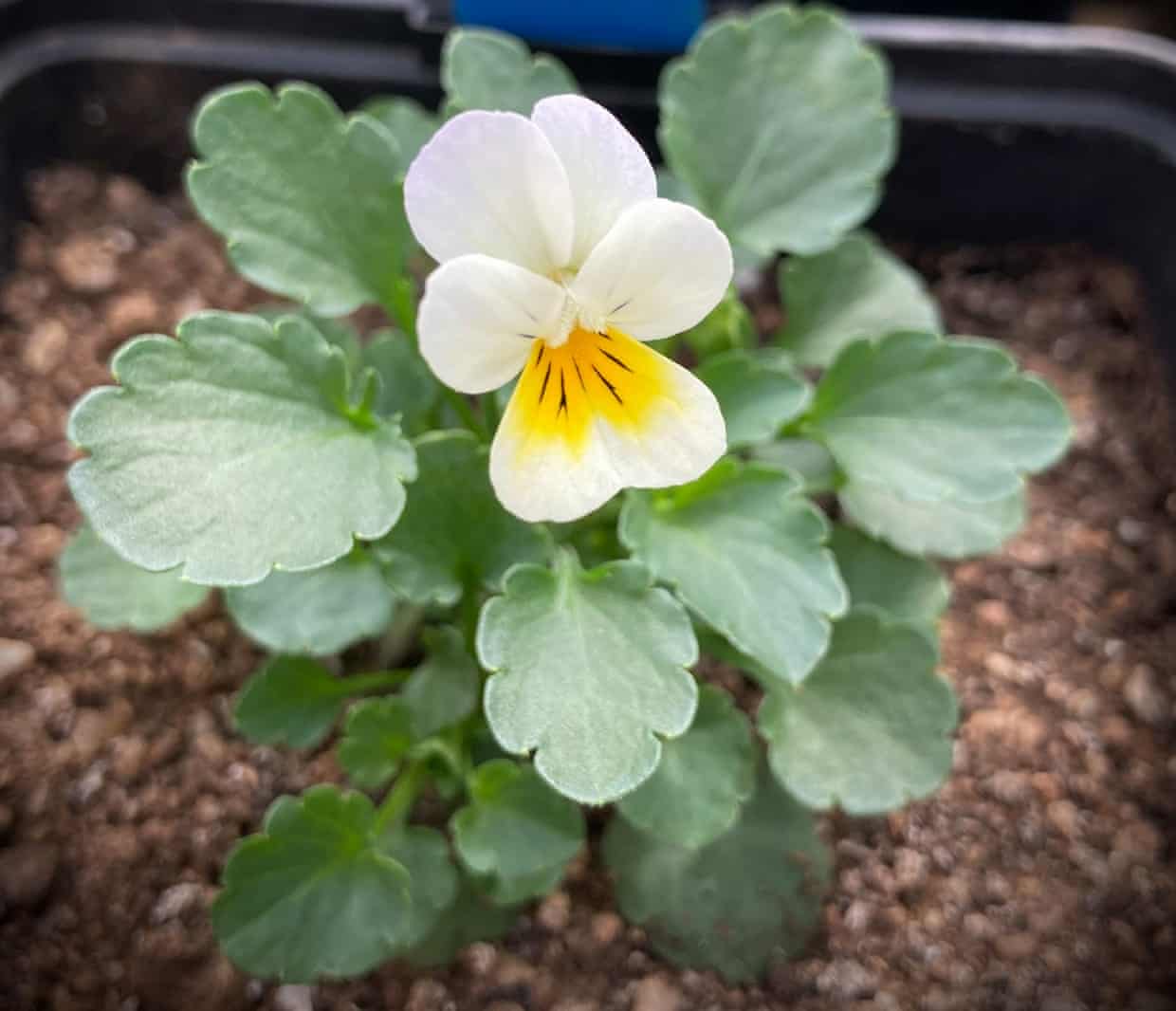
Flowers are “giving up on” pollinators and evolving to be less attractive to them as insect numbers decline.
A study has found the flowers of field pansies growing near Paris are 10% smaller and produce 20% less nectar than flowers growing in the same fields 20 to 30 years ago. They are also less frequently visited by insects.
“Our study shows that pansies are evolving to give up on their pollinators,” said Pierre-Olivier Cheptou, one of the study’s authors and a researcher at the French National Centre for Scientific Research. “They are evolving towards self-pollination, where each plant reproduces with itself, which works in the short term but may well limit their capacity to adapt to future environmental changes.”
Plants produce nectar for insects, and in return insects transport pollen between plants. This mutually beneficial relationship has formed over millions of years of coevolution. But pansies and pollinators may now be stuck in a vicious cycle: plants are producing less nectar and this means there will be less food available to insects, which will in turn accelerate declines.
Insect declines have been reported by studies across Europe. One study on German nature reserves found that from 1989 to 2016 the overall weight of insects caught in traps fell by 75%. Acoca-Pidolle added: “Our results show that the effects of pollinator declines are not easily reversible, because plants have already started to change. Conservation measures are therefore urgently needed to halt and reverse pollinator declines.”
“The fact that these flowers are changing their strategy in response to decreasing pollinator abundance is quite startling. This research shows a plant undoing thousands of years of evolution in response to a phenomenon that has been around for only 50 years.”